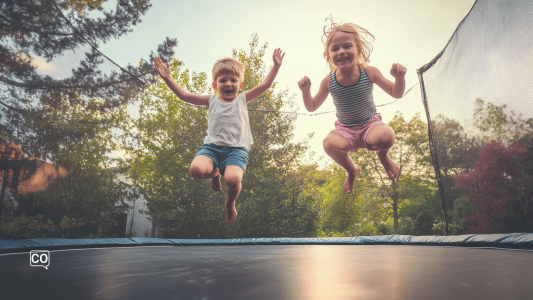Infancia y recuerdos

Learning goals:
- Situation: Hablar sobre el pasado lejano y describir recuerdos (Talk about distant past and describe memories)
- Situation: Habla sobre tu infancia (Talk about your childhood)
- Situation: Pretérito imperfecto (Pretérito imperfecto)
- Verb: Ser (to be) - Pretérito imperfecto, indicativo (Imperfect Past, indicative)
- Verb: Vivir (to live) - Pretérito imperfecto, indicativo (Imperfect Past, indicative)
- Verb: Trabajar (to work) - Pretérito imperfecto, indicativo (Imperfect Past, indicative)
- Verb: Decir (to say) - Condicional simple, indicativo (Simple conditional, indicative)
- Verb: Pedir (to ask) - Condicional simple, indicativo (Simple conditional, indicative)
- Verb: Ver (to see) - Pretérito imperfecto, indicativo (Imperfect Past, indicative)
- Verb: Ir (to go) - Pretérito imperfecto, indicativo (Imperfect Past, indicative)
- Verb: Comer (to eat) - Pretérito imperfecto, indicativo (Imperfect Past, indicative)
- Grammar: El Pretérito Imperfecto (The Imperfect Past Tense)
- Culture: "Chicos en la playa": el retrato de la juventud, la inocencia y el pasado ("Kids on the Beach": the Portrait of Youth, Innocence, and the Past)
Learning module 3 (A2): El buen pasado (The good old past)
Teaching guidelines +/- 60 minutes
Exercises
These exercises can be done together during conversation lessons or as homework.
Exercise 1: Find the words
Instruction: Find the words, mark them and make sentences with the words.
Show answers Show hintsHints
The baby , The toy , Fun , The memory , To miss , To die
Answers
Score: 0/6
| Divertido | (Fun) |
| Echar de menos | (To miss) |
| Morir | (To die) |
| El bebé | (The baby) |
| La memoria | (The memory) |
| El juguete | (The toy) |
Exercise 2: Reorder sentences
Instruction: The words in these sentences have been shuffled! Sort them so that they make a valid sentence again and translate.
Show answers Show translationExercise 3: Translate and use in a sentence
Instruction: Translate and say the word out loud. Use the word in a sentence.
Show translation|
1.
El adolescente
|
(The teenager) |
|
2.
Morir
|
(To die) |
|
3.
La nostalgia
|
(The nostalgia) |
|
4.
El juguete
|
(The toy) |
|
5.
Salir
|
(To leave / to go out) |
|
6.
La infancia
|
(The childhood) |
|
7.
La memoria
|
(The memory) |
|
8.
El bebé
|
(The baby) |
Exercise 4: Translate and make sentences
Instruction: Translate the words and phrases below and use it in a conversation or text.
Show answersExercise 5: Conjugación verbal
Instruction: Choose the correct word, read the sentence out loud and translate.
Show answers Show translationSer (Pretérito imperfecto, indicativo), Decir (Condicional simple, indicativo), Ir (Pretérito imperfecto, indicativo), Pedir (Condicional simple, indicativo), Comer (Pretérito imperfecto, indicativo), Vivir (Pretérito imperfecto, indicativo), Trabajar (Pretérito imperfecto, indicativo), Ver (Pretérito imperfecto, indicativo)
1. Yo ... a la playa cada verano.
2. Él ... en la montaña y admiraba la naturaleza.
3. Vosotros ... el mar desde la playa.
4. Ellos ... mientras veían el vuelo despegar.
5. Nosotros ... que este camino es más corto.
6. Tú ... que la vista desde la montaña es espectacular.
7. Nosotros ... en la ciudad y viajábamos al campo los fines de semana.
8. Él ... la cascada mientras respiraba aire fresco.
Exercise 6: The Imperfect Past Tense
Instruction: Choose the correct word, read the sentence out loud and translate.
Show answers Show translationsalías, ibas, escuchábamos, era, morían, veíais, os quedabais, cenábamos, echaba de menos
1. Echar de menos (él): Mi abuelo siempre ... su infancia.
2. Cenar (nosotros): Mis amigos y yo ... antes de que salíamos de fiesta.
3. Escuchar (nosotros): Cuando éramos adolescentes ... la música de los años 80 y veíamos los conciertos de nuestros artistas favoritos.
4. Ver (vosostros): Siempre os llevabais un susto cuando ... algo sorprendente.
5. Ir (tú): En nuestra infancia siempre ... a jugar conmigo en el parque.
6. Ser (ella): Cuando mi madre ... adolescente salía de fiesta con sus amigas.
7. Salir (tú): Después de que ... siempre corrías al lado del río.
8. Quedarse (vosotros): Cuando nosotros salíamos a cenar, vosotros ... en el hotel para jugar.
9. Ser (yo): Cuando ... un niño siempre jugaba con mis amigos.
10. Morir (ellos): Cuando sus abuelos ..., mis amigos los echaban de menos.
Exercise 7: Translate and make sentences
Instruction: Translate the words and phrases below and use it in a conversation or text.
Show answers